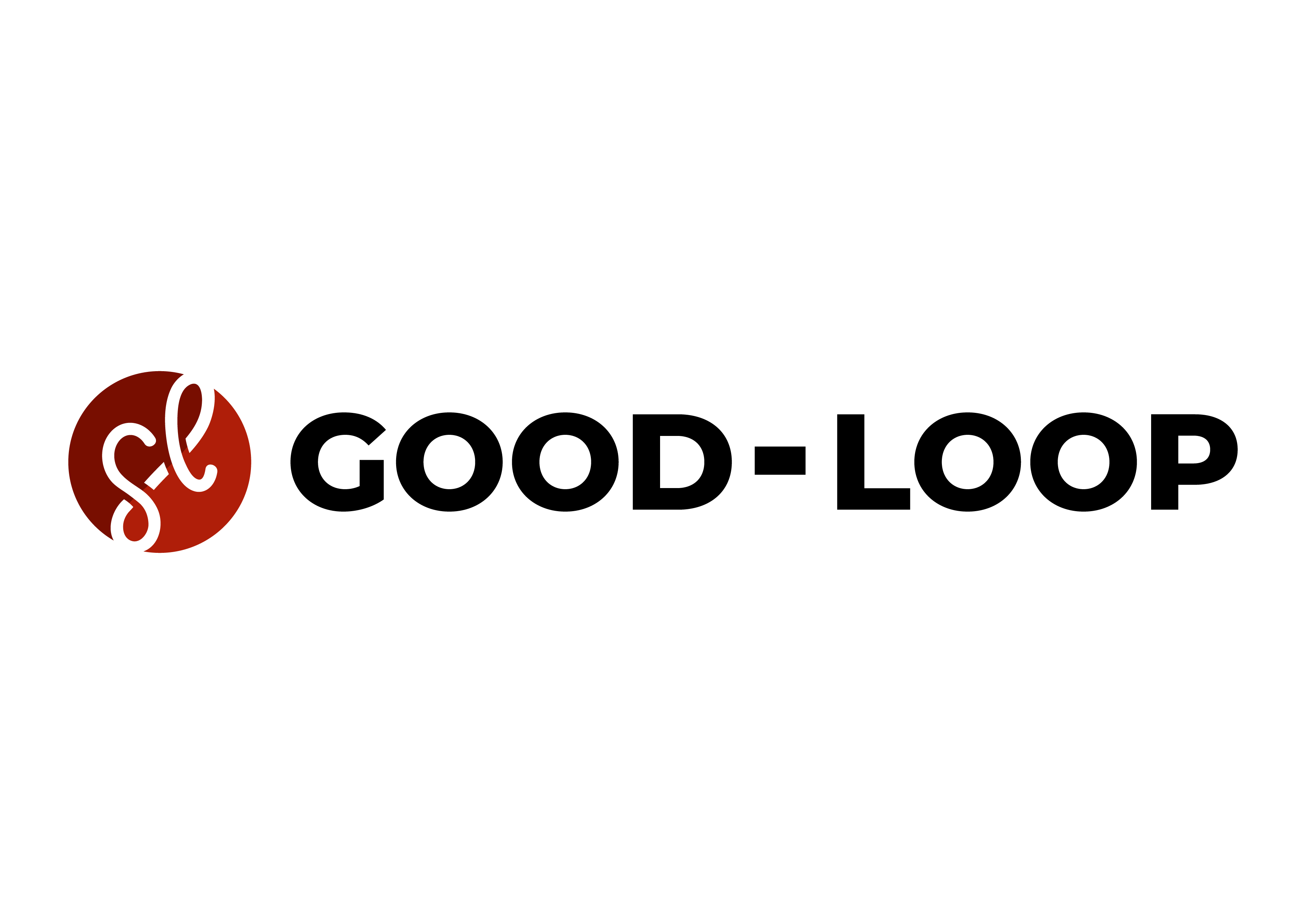How does a 22-year-old help raise nearly £20m in a matter of days whilst getting the UK government to make an u-turn worth £120m? Marcus Rashford helped provide free meals to vulnerable people first in Manchester and then across the UK. Furthermore, when school dinner vouchers (vital for millions of people) were about to be stopped at the beginning of summer, he penned an open letter drawing on his own childhood experiences, admonishing the government to extend the scheme. In a stunning reversal, Boris Johnson responded to the appeal by creating a fund supporting 1.3 million pupils across the country. Why did Boris listen? It's because Rashford is a bona fide football superstar, playing both for Manchester United and England, and he sets an example for how to use your platform for good that we all should endeavour to emulate.
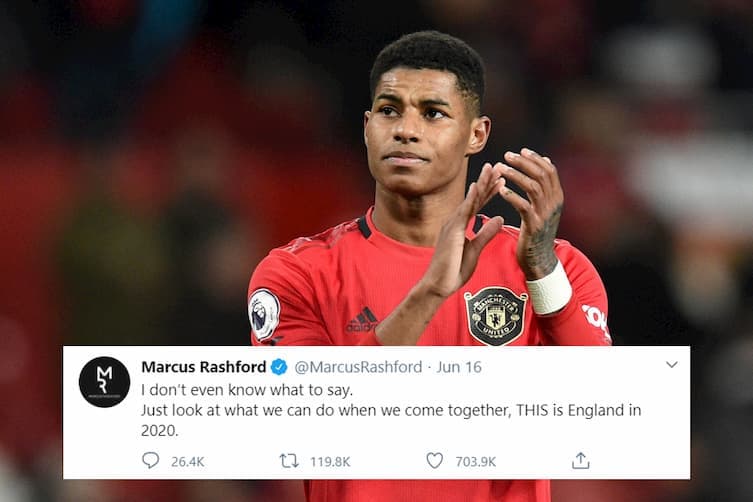
The last year has been seismic for many reasons, but one of the few positive ones is that the world of sport has used its platform to stand up for what they believe is right like never before. As a business that is all about bringing a company's purpose to life in an impactful way, we believe that brands can learn a lot from those brave and passionate efforts both from this year and those that came before. We have detailed some of our favourites below, the moments and people that paved the way for the amazing work today's players are doing.
Although by no means the earliest example of purpose and activism in sport, it could be argued that Muhammed Ali refusing to be drafted into the Vietnam War in 1966 is the first time an act grabbed the attention of the world. Citing both religious beliefs and his opposition to the war itself, Ali was arrested and subsequently stripped of his passport and boxing licences. At the time, he was Heavyweight champion and easily one of the biggest celebrities in the world. In his own words; "Why should they ask me to put on a uniform and go ten thousand miles from home and drop bombs and bullets on brown people in Vietnam while so-called Negro people in Louisville are treated like dogs and denied simple human rights?" Ali wouldn't fight for almost three years in the prime of his career and if opposition to the war had not grown so strongly in that period, he might never have boxed again.
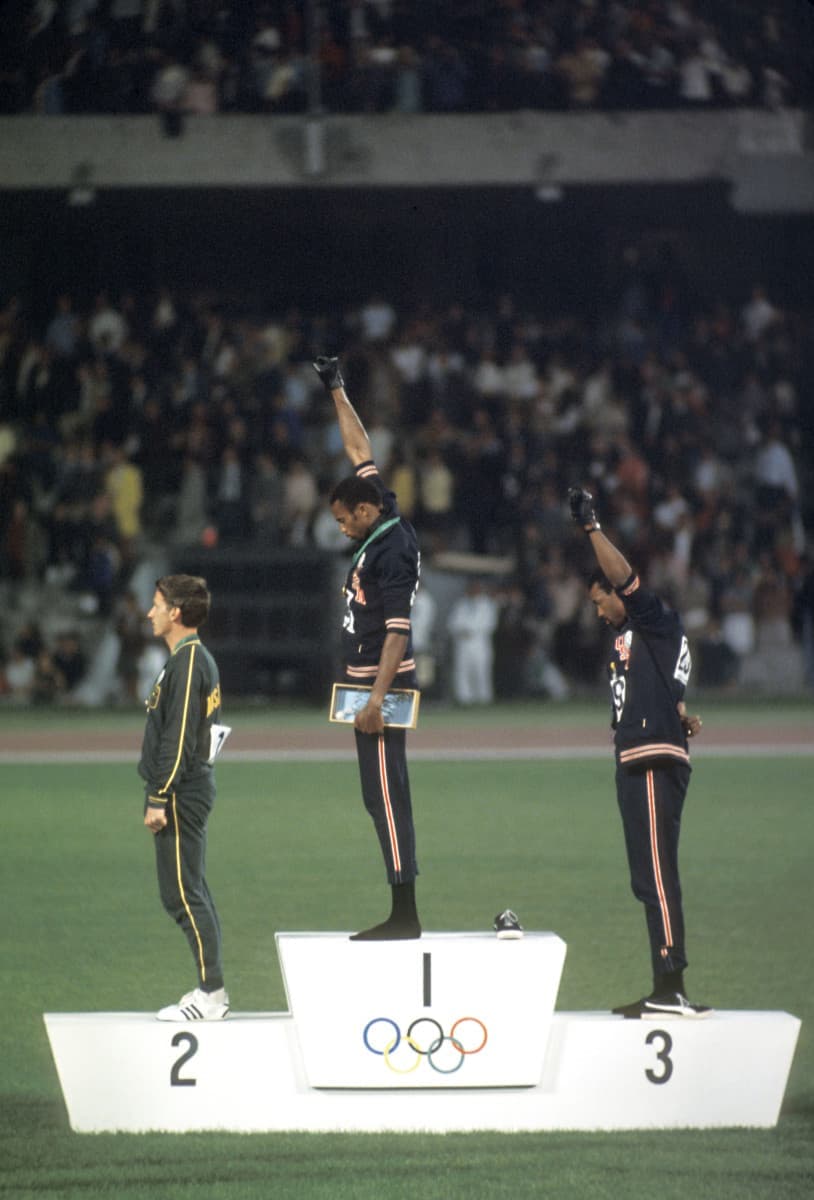
The 1968 Olympics in Mexico gave us a moment and an image that has become seared into history. Tommie Smith and John Carlos, African American athletes, had just come first and third respectively in the 200m finals. Each raised a black-gloved fist to the sky as the US national anthem played. They had also taken off their shoes to directly protest poverty in the US; "It was a cry for freedom" Smith recounted in a 2016 interview with the Smithsonian's Museum of African American History and Culture (who subsequently acquired the tracksuit he was wearing that day, along with the shoes he raced in, and the box he held on the podium, which contained an olive tree branch). Having broken Olympic rules they were ordered to leave the stadium and Mexico City. Upon their return to the US the reward for their bravery was death threats and expulsion from the US track team.
In 1973, it was time for tennis to serve up its own milestone. Billy Jean King accepted a challenge from Bobby Riggs for the Battle of the Sexes. Billie Jean was already the No1 ranked female player in the world and a huge advocate for gender equality. She took the opportunity to make her cause known on the world stage. In a story so compelling it is now a Hollywood film, it was a tennis match which had never before been witnessed by so many people. 30,000 spectators in Houston and 90 million TV viewers worldwide were counted in attendance. People were enthralled by the game and by the surrounding spectacle, which included people dressed as dancing bears, a carvery courtside, and cheerleaders brandishing pom-poms. The players themselves were even borne into the arena like emperors. King was brought in upon a feathered Pharaonic litter, carried by burly men. Riggs was pulled in a rickshaw by young women. Only in America.
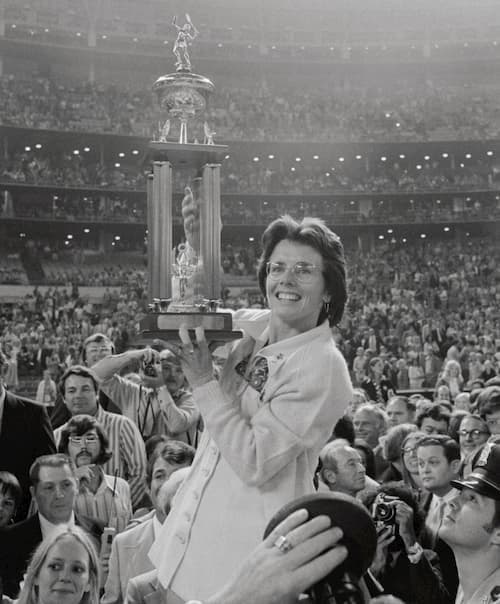
Thankfully, on the court Billie Jean won in straight sets against her chauvinistic opponent. Riggs said in the press conference: "Don't get me wrong - I love women, in the bedroom and in the kitchen". The whole event and the surrounding press was a huge step to empower women to advocate for equal pay and sparked a boom in women's sport participation. The victor, King herself said afterwards about the pressure: "I thought it would set us back 50 years if I didn't win that match".
The NBA has a long history of players and teams using their platform to make a difference. However, there have been some missed opportunities too, like Michael Jordan's famous refusal to endorse Democrat Harvey Gantt in the 1990 Senate Race. Gantt was an African American who was running against the incumbent Republican Jesse Helms. Helms was a notorious racist, and Jordan explained the controversy away by saying that, "Republicans buy sneakers too". Since that time in 1990, Michael Jordan has realized his opportunities to support community movements -- as he recently pledged $100m to Black Lives Matter.
Today's superstars like LeBron James, are doing things differently when they matter most - at the height of their playing careers and influence and despite opposition from the other side telling them to "shut up and dribble". In June, Lebron and other athletes founded a new group aimed at protecting African-Americans' voting rights called More Than A Vote. He is one of many in the NBA who's philanthropic efforts in their home communities are an inspiration to us all.
Last month, for the first time ever, NBA finals games were boycotted by teams. The first team to start the boycott was The Milwaukee Bucks in protest to the police shooting of Jacob Blake in their home state of Wisconsin. This became the latest incident to prompt outrage nationwide over racial injustice and police brutality. Solidarity was quickly shown by other teams and leagues across the country bringing a multi-billion dollar industry to a standstill. In The Buck's own words
"The past four months have shed a light on the ongoing racial injustices facing our African American communities. Citizens around the country have used their voices and platforms to speak out against these wrongdoings. Despite the overwhelming plea for change, there has been no action, so our focus today cannot be on basketball."
Praise has been heaped on the players from around the world, with Barack Obama posting his support with an impassioned video of coach Doc Rivers (whose father was also a police officer), remarking that "it's going to take all our institutions to stand up for our values".
Brands, although undoubtedly one of the institutions that Barack means, cannot all pursue such outright activism. But standing up for what they believe and being true to their purpose is the thread that runs through all these stories. That is certainly something that brands should be taking very seriously.
One powerful way for brands to help is by supporting visionary athletes in their endeavours. Two excellent examples of this are Nike with Colin Kaepernick and the various brands (including Kellogg's, Tesco, and Lidl) supporting Marcus Rashford in the next iteration on his war on food insecurity. Their aim is to provide invaluable support and expertise so that they can empower sports stars to further their influence and do even more good in the world. This will in-turn bring their own brand purpose to life in an authentic way that will resonate with consumers and drive real value.
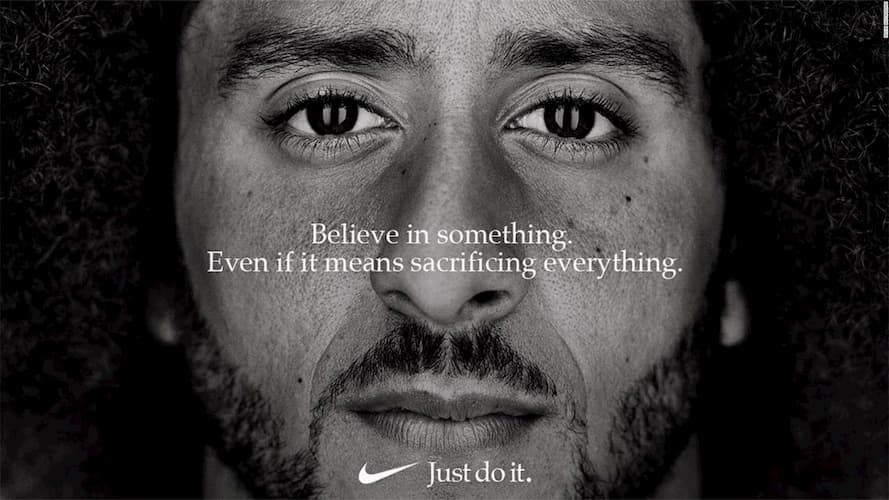
Just ask Nike, who released an ad campaign featuring Kaepernick with a tagline of "Believe in something. Even if it means sacrificing everything." The NFL player became famous around the world for his kneeling protest against police brutality during the national anthem before kick-off. This drew the ire of Donald Trump and other people of a similar disposition, which lead to Kaepernick being frozen out of the league in 2016. Nike's continued support of him is paying off, they saw a 31% increase in sales following their aforementioned campaigns - which can't entirely be explained away by replacements for the products that people burnt in protest.
